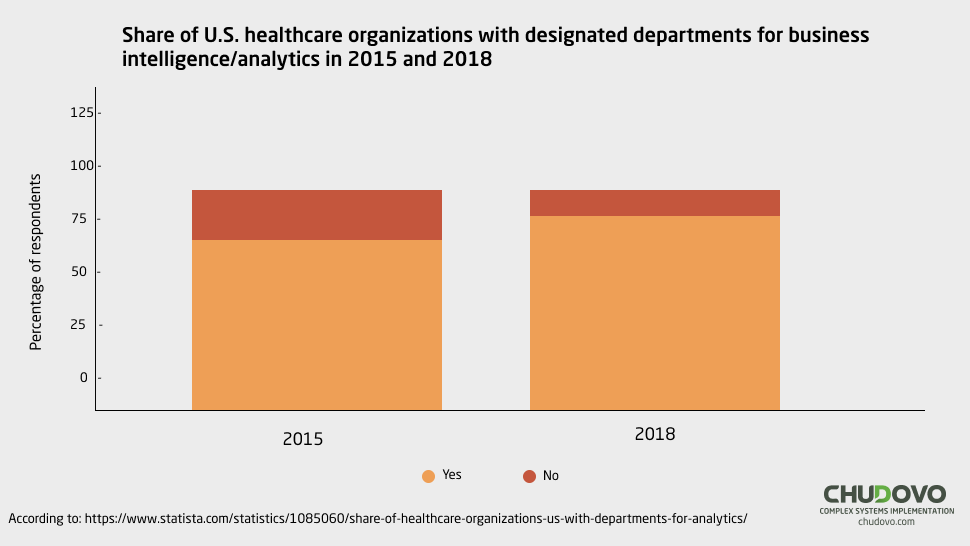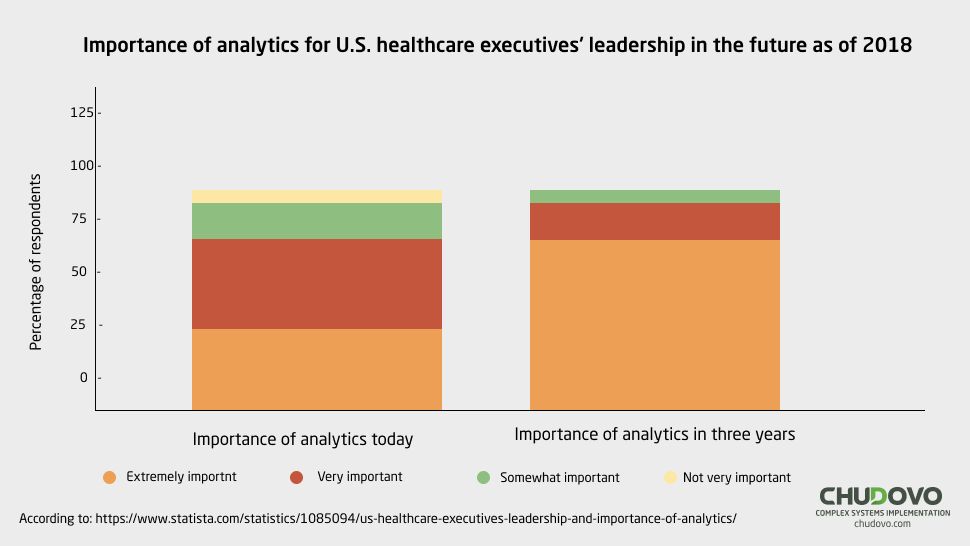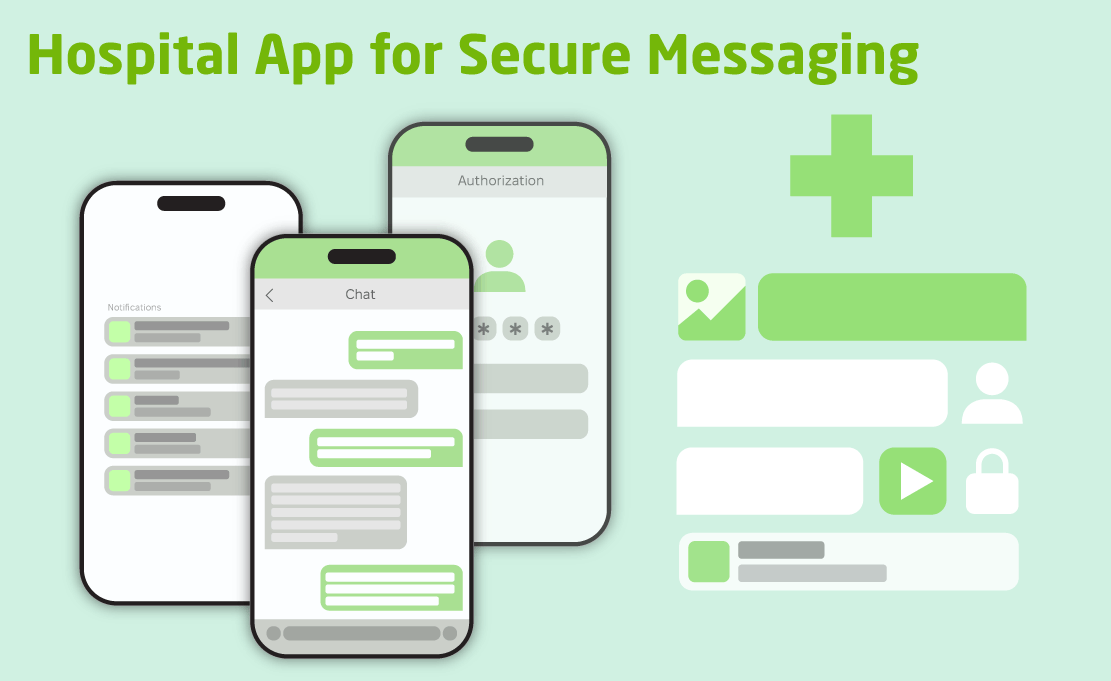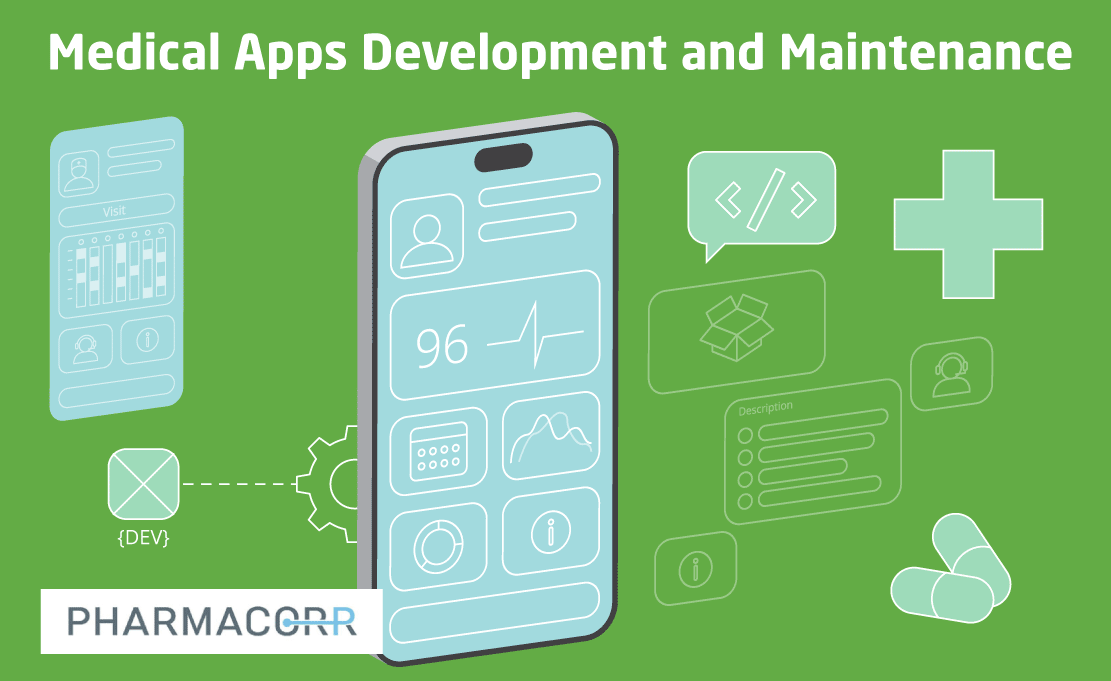Injecting Intelligence: The Power of BI in Transforming Healthcare Operations
Healthcare industry’s main priority is to offer quality care for their respective patients, and business intelligence in healthcare takes a significant part in this process. Its objective is to provide medical professionals with the resources they need to effortlessly access, view, and evaluate patients’ information. Get a consultation.
Table of Content
What does Business Intelligence mean?
Business intelligence is when organizations are able to make good choices that are then used to influence the procedures of their business for better outcomes. There are technologies that serve this purpose, and they help firms in drawing valuable conclusions from data. They collect, evaluate, and explain the information obtained from many different sources in order to discover trends and patterns that will help improve operations. This method of problem-solving based on data helps to tackle challenges like slow decision-making and poor outcomes. BI tools consist of a dashboard, reports, and visual representations that enable users to figure out information in a straightforward way. Modern features like natural language processing and embedded predictive analytics gives improved and better details for solving problems.
Businesses leverage BI because it helps effectively in better decision-making, and enhances the operations carried out in businesses. This tool reveals the possibility of data thereby transforming organizations with the powerful use of information. Business intelligence tool collect information together and converts it into enhanced choices. It does not need high level of expertise before you can work with it. Business intelligence software is readily available and easy to access.

In 2018 Statista reported that there was a significant increase in the use of business intelligence software in the healthcare industry, there was a record of 88% of departments in health institutions in the US that utilizes this tool compared to the previous year that recorded 76%.
Business Intelligence software: how does it function in healthcare?
Business intelligence healthcare software is a tool that sets up and evaluates data for healthcare practitioners like hospitals and clinics. This tool tracks information from patients’ documents, financial records, and other sources to help healthcare providers minimize their expenditures and augment the care given to patients. Medical software gathers data digitally and defines and manages information about patients. Healthcare BI takes this information and converts it into enhanced choices and care for patients. Business intelligence software is readily available and easy to access. It requires little specialized expertise to use compared to medical software. It possesses an intuitive user interface that enables all sorts of employees in the healthcare industry to view information that they need which is specific to their job.
Healthcare BI tools help to translate unprocessed data into useful information. The understanding gained from the information can help boost the productivity of health services such as patient care and the making of decisions in the healthcare industry. Data from different sources are processed to unravel new solutions that will bring improvement to healthcare operations.
What is the importance of Business Intelligence in Healthcare?
The benefits of business intelligence software in healthcare are numerous, featuring everything from enhanced treatment and care for patients to a quality refinement of hospitals’ internal procedures.
Improved patient care
Patient management systems have analytics infused into them. This enables health practitioners to gain detailed information regarding their patients, family and medical history, results of treatment, and potential risks right there in the system. Health professionals can easily detect patients who are in danger of developing complications from a procedure and take preventive measures to overcome them. Ultimately this will result in greater diagnosis, more customized methods of treatment, and enhanced treatment results for patients.
Increased operational efficiency
The operation of analyzing regular data can be automated using business intelligence software. It enables health experts to focus solely on caring for patients instead of maintaining data. Hence, this tool additionally strengthens hospital operations which includes time management and staffing, handling of inventory for keeping patients’ records with the provision of comprehensive information.
Cost reduction
One important aspect of this tool is how it helps healthcare organizations reduce costs in caring for patients because when the patient data and other operational process is evaluated a decision is made as regards a suitable and quality treatment for the patients. Healthcare service providers reduce operational costs by simplifying processes and utilizing resources with better proficiency based on insight gained from data. This tool helps to recognize patterns which contributes to a more accurate understanding of a patient. Business intelligence software helps to spot inconsistencies in operation and instances where expenses can be reduced without sacrificing the quality of care. With predictive healthcare analytics, there is a reduction in emergency medical treatments because ailments are addressed at their earliest stage. When operational effectiveness is enhanced, this opens room for funds to be saved up and used in getting new types of equipment for the treatment of patients. For instance, a healthcare enterprise data warehouse can gather financial, administrative, and clinical information from the health system into a single reliable source. When very important information has been collected in one place, processes such as accounting and cost become simpler to carry out without mistakes.
Enhanced risk management
Risk management in healthcare refers to the practices set in order to reduce, determine, and protect against hazards. By evaluating big data, healthcare service providers can predict health complications that patients might encounter. Therefore, they may undertake mitigation measures to minimize the harm that occurs. Risk management methods in healthcare have widened beyond safeguarding patients and reducing errors while caring for patients. Concerns like cyber security have also been on the rise because patients’ information is now being kept electronically and has to be protected from being breached.
Monitor the results of patients
Healthcare providers have to monitor the outcome of patients in order to assess if their medical treatment are successful and then provide further treatment if needed. However, sometimes, collecting accurate information about patients can be difficult. This happens because lots of patients recuperate at their houses and might neglect keeping health experts updated on how they are doing after a treatment. Healthcare institutions may carry out assessments and follow-up telephone conversations to gather extensive and detailed information in order to evaluate the entirety of treatment outcomes. Using this tool to analyze and report health information, health practitioners will cautiously determine how effective a medicine is before they can prescribe it for the care of a patient.
Enhanced decision-making
Medical professionals can leverage business intelligence software to obtain real-time analytics and information as part of their systems operation. This enables medics and administrative staff to make thoughtful decisions fast. In the old ways of using the evaluation of data in healthcare, medical experts would ask for findings from the data team before they can successfully make decisions. However, business intelligence in healthcare helps medical experts take out intermediaries, allowing them to draw conclusions directly from the well-organized information they have. Patients may additionally utilize self-service BI software to effortlessly find their own medical data.
In the healthcare arrangement, many times, experts from various divisions need to collaborate and come up with ideas for solutions in emergency situations. However, their interaction can frequently be hindered by a lack of resources. Operational procedures and decision-making are made easy using business intelligence tools because the information of a patient can seamlessly be shared within the needed group of health experts. It thus makes it less challenging to derive information from a patient’s past record and offer a more effective treatment.

According to Statista, in survey conducted among healthcare executives in the US 84% of them reported that business intelligence or analytics in the coming years will be very significant in their leadership role. Apparently, this is because of how efficiently its aids different types of department in healthcare institutions to make informed decisions.
Claims management
An effective claims management process has a limited period of delay between payment and reimbursement. By simplifying the procedure of payment, business intelligence tools will assist with quicker and more efficient processing of payments. Healthcare insurance providers are also capable of using this business intelligence technology to protect themselves from fraud. This software can easily recognize trends that indicate fraud such as excessive quantity of prescriptions that is false and high billing. This will help them keep in check hospital revenue and expenditures.
Compliance and reporting
Healthcare is an extremely regulated industry that demands meticulous compliance with various safety and legal rules. Using business intelligence tools, health institutions can monitor and provide information that complies with the requirements of regulators.
Data sharing and scalability
Business intelligence software can be tailored to healthcare organization-specific requirements and modified as they evolve. This means that medical professionals will continue to enjoy the advantages of this tool as they grow and are adapted to the operations of the organization. This tool is very efficient at distributing information gathered from various sources. It enables health experts to compare the symptoms a patient is experiencing with global data to be able to make an informed decision on the treatment of such a patient.
Better user adoption
Because business intelligence software is built into systems that staff members have prior experience with, the utilization rate is compared to independent BI software. The more it is used the better it helps in evaluating data and improves the entirety of operational performance in health institutions.

Certified engineers
Convenient rates
Fast start
Profitable conditions
Agreement with
EU company
English and German
speaking engineers
Features of Business Intelligence software in Healthcare
Data visualization
With the use of dashboards to use easy-to-understand charts to help health practitioners find effective treatments for their patients. Leveraging the easy representation of complex data, health experts can make informed decisions.
Reporting
This tool delivers concise, accurate, and well-organized reports that is aimed at improving operational performance in health institutions and helps health experts to make better and more informed decisions in health procedures.
Data storytelling and enhanced information delivery
With the use of machine learning methods to provide detailed information from the evaluation of various data. This information is explained automatically in a comprehensive way in order to carry out health operations seamlessly in order to produce significant results in the care of patients and other medical procedures.
Security
Business intelligence software is built with processes that involve high-security measures such that each section of the system is only accessible to a specific set of people. For example, the section that belongs to a medical staff can not be accessible by an auditing staff in that health institution. This is to enable the protection of sensitive data from being breached.
Business Intelligence solution taking the lead in healthcare
Microsoft Power BI
This tool can help businesses turn data into actionable insights. Whether your data is stored on the cloud or your local machine, this tool can connect to it seamlessly. It helps to create visuals and reports that render complex information very easy to understand. Power BI also works efficiently with the common Microsoft tools you already use, such as Excel and PowerPoint. It is very scalable, affordable, and easy to use. Hence, it makes a good option for any type of organization, big or small.
Reasons to use Power BI in healthcare:
- Dashboard. Users can efficiently interact and share information. The dashboard holds essential details and displays data with the help of an already developed, communicative, and visual representation of data that is peculiar to each user.
- Easy-to-use. Power BI’s simple to operate drag and drop design guarantees that every single member of an organization’s care team is able to use analytics to make decisions.
- Reporting. The Power BI can help you create flawless, personalized summaries using your data which can be transferred to multiple types of formats for storage or consumption of relevant data.
- Accessibility. This helps health workers to be able to make decisions fast because it can inspect and evaluate information about a patient using any electronic device at any time.
- Security. Patient privacy is protected by law, enabling restrictions on access to patient data whilst health experts are provided with only the information they need.
- Healthcare templates. There are already designed dashboards and report templates relevant to healthcare institutions, which they can possibly copy to create their form of solutions in viewing and providing reports.
Tableau
This is a prominent business intelligence tool for facilitating organizations to build visually appealing dashboards from their data. Healthcare organizations can proactively use it as a data-driven tool with the goal of improving patients’ experience through well-evaluated decisions enabled by data visualization. Users who have different technical expertise can navigate through the platform to review data.
Reasons to use Tableau:
Tableau explains data correctly. It provides AI-driven interpretation and descriptions about a particular data point with just one click. Stating not only what the data stands for or what it is for but also why the data is used.
- Natural language processing. Users can ask questions in natural language and get relevant replies in the form of data visualization created automatically.
- Dashboard. Create a flexible, interactive dashboard that conveys your data precisely and translates it into complete, meaningful information that aids decision-making processes.
- Geospatial analysis. With already existing geographic abilities and mapping, you can turn your information into knowledge and maps with interactive features that add more meaning to your data.
Diver Platform
This is an extensive collection of tools for data analytics that helps users to explore deeply about self-service data. It gathers details from multiple data sources into a single collection of databases and subsequently evaluates It.
Reasons to Leverage Diver Platform
- Industry-specific KPIs. From a library of hundreds of different industry-specific KPIs (key performance indicator), different measures to track this indicator are selected, which are then modified according to your organization’s criteria and standards.
- Data collection. You can get immediate and simple access to numerous data sources, such as the ERP and EHR systems leveraging Diver. It automates the extraction of data, which leads to a multifunctional structure of data that is ideal for inquiry, evaluation, and report generation eliminating the need for a data warehouse.
- Personalized dashboard. A customized dashboard helps display only important information peculiar to a user. It provides users with crucial information relative to their jobs, specifications, personal preferences, and departments via a central access point. This helps users to filter out irrelevant information and focus on metrics that are of more significance.
FAQ
What is a BI tool in healthcare like?
It has a dashboard that shows a pictorial representation of the information that health experts need in a comprehensive way.
How is a Business Intelligence tool different from an Electronic Health Record tool?
While Business intelligence tools can be used to track health records and some important processes, they can be managed with little or no expertise but electronic health record tools can only be managed by health experts.
Why utilize Business Intelligence in healthcare?
With this tool, healthcare providers can turn every piece of data about their patients into very significant information. This will enable them to provide proper care and better patient experience because of the use of well-evaluated data.
Consult the expert team of Chudovo software engineers to integrate Business Intelligence solutions into your healthcare software.







